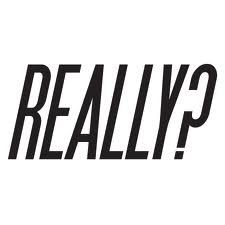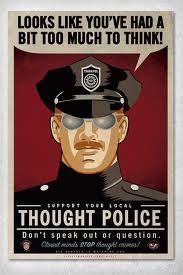Bias
Liberal Bias in Social Psychology: Personal Experience II
How to purge evidence of liberal bias without even trying...
Posted October 31, 2013

Whether liberals or conservatives are more biased in their perceptions of science and social science has, of late, become something of a hot topic in social science. Certainly, my field has garnered far more evidence of conservatives than of liberals holding biased and distorted beliefs about science.
However, that could have occurred for at least two different reasons:
1. Conservatives really are more biased in their beliefs about science than liberals
2. My field, being dominated by liberals, focuses on distortions among conservatives far more than distortions among liberals. (These are not necessarily mutually exclusive reasons for the field’s emphasis on conservative bias).
Anyway, one of my former graduate students and current collaborators, Dr. Jarret Crawford, has been at the forefront of exposing bias in the ways ideological biases have been studied by (overwhelmingly) liberal social psychologists. He led a study examining whether liberals or conservatives showed more bias in their evaluations of scientific articles. This is a hot topic because liberals (including but not restricted to liberal social psychologists) are so often appalled at conservatives supposed anti-scientific views (see my previous posts on why this view is so highly overstated and also on why conservative skepticism about science is often more well-justified than liberal trust in it).
In our study, people read either an article reporting research showing that affirmative action harmed African-Americans and an article reporting research showing that same sex relationships were just as healthy as heterosexual relationships OR they read an article reporting research showing that affirmative action was beneficial to African-Americans and an article reporting research showing that same sex relationships were not as healthy as heterosexual relationships. So, everyone read one “liberal” and one “conservative” article. Furthermore, everything about the articles was held constant, except the result, so there were no objective differences in the quality of research supporting the liberal or conservative conclusions.
The main question was: Who would be more biased in their judgments of the article, liberals or conservatives? People were asked to indicate how true they considered the article to be, and how biased they considered the author to be.
And the resounding answer was: Liberals were far more biased. Liberals viewed the articles reporting “liberal” results (affirmative action and same sex relationships are good) as truer and reflecting less author bias than the articles reporting “conservative” results. Conservatives, in contrast, viewed the truthfulness and bias in the articles as nearly identical, regardless of their results.
An early version of this paper was framed quite explicitly as examining whether political biases were symmetric (i.e., similar for conservatives or liberals) or asymmetric (larger for liberals or conservatives). Clearly, we found they were larger for liberals. We thought this result was incredibly important, because so much prior research had emphasized bias and distortion among conservatives and had reported that such biases were generally larger than those occurring among liberals. As such, this should have been important “news” – even “counterintuitive news” given how much the received wisdom emphasized conservative bias (and, for better or worse, social psychology has long been enamored of such counterintuitive findings – although, as this story demonstrates, perhaps it is primarily counterintuitive findings that do not challenge the supposed moral or intellectual superiority of liberals that are so privileged).

We could not get this published. It was rejected at two separate journals. Finally, we decided to bag every mention of liberals being more biased than conservatives, and resubmitted it to another journal. This time, it was accepted. Now, even though the text does not mention finding that liberals were more biased than conservatives, the pattern is right there, in the data reported in tables and figures, for anyone to see. The paper shows that liberals are more biased than conservatives, at least when and how we studied it. Neither I nor Jarret would or did claim that such a pattern is always necessarily true. But it was true in our data. We were just not permitted to say so.
To be clear, no one said, “You cannot say liberals are more biased than conservatives.” We just could not get the paper published when we did say that and we did get it published when we did not say that.
If you have not yet read my first story along these lines, Liberal Bias in Social Psychology I, I recommend it highly, because it shows essentially the same thing happening with a grant proposal.
All of which raises the question, “To what extent is research on politicized topics in social psychology, psychology, and the social sciences distorted by political bias?” Or, put differently, how much does political bias lead us to entirely unjustified and invalid conclusions?
Reference
Crawford, J. T, Jussim, L., Cain, T. R., Cohen, F. (2013). Right-wing authoritarianism and social dominance orientation differentially predict biased evaluations of media reports. Journal of Applied Social Psychology, 43, 163-174.
References emphasizing conservative bias
Altemeyer, B. (1996). The authoritarian specter. Cambridge, MA: Harvard University Press.
Jost, J. T., Glaser, J., Kruglanski, A. W., & Sulloway, F. J. (2003). Political conservatism as motivated social cognition. Psychological Bulletin, 129, 339-375.
Then there is my recent book, which documents how social psychology’s conclusions about social beliefs, expectations, self-fulfilling prophecies and stereotypes have been consistently distorted in ways that unjustifiably bolster liberal narratives of oppression:
Jussim, L. (2012). Social perception and social reality: Why accuracy dominates bias and self-fulfilling prophecy. New York: Oxford University Press.




